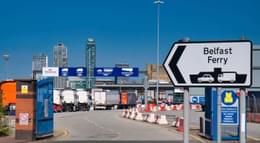
Values, not economics, define Britain’s new politics
The new motivations of voters mean that a soft Brexit will spell doom for the Conservatives in spite of the fear of Corbyn
The two years since the Brexit vote have been the most radically transformative years in Britain's post-war history. To look back at the year before almost seems to require a long memory and a wild imagination.
2015 had been the year of David Cameron's surprise majority win. Running a campaign centred around "our long-term economic plan," the Conservatives won over almost every seat in the South West of England, while largely holding on to their marginal seats across the country. The result was a definitive loss for Ed Miliband's brand of interventionist economic policies, from the energy price freeze to renationalisation of the railways. The ideas were just too radical for a naturally conservative country, we were told.
And barely three years on, a Conservative Government has largely abandoned its lip-service to fiscal responsibility, has attacked the functioning of the free market and even instigated energy price controls. So-called austerity policies, which have nevertheless seen the Government's share of national expenditure reach a 20-year high, have been quietly abandoned. The official opposition, currently riding high in the polls on around 40% back renationalisation not only of rail, but of mail, water and who knows what else if it were to ever reach high office.
But most bemusing of all, is that this radical shift in Britain's centre of gravity on economics has happened almost by accident. It is partly down to the leadership of both parties, but above all is down to how the Brexit vote has realigned political priorities in the country. Frankly, it is hard to care whether the top rate of income tax should be 40%, 45% or even the more stretching targets suggested by John McDonnell, when the country is convulsing over fundamental decisions about not just where the country is headed, but what the country is.
Liberal centrists delude themselves that Britain will grow out of its tantrums over its relationship with Europe, putting the Brexit vote down to the relatively poor performance of the economy over the past few years. They say that the reason people decided to rip up the delicate relationship with Europe was not because of any fundamental concerns, but because of a stagnant economy and all the misguided fears that accompany it.
But the evidence suggests otherwise. In other countries, with Governments less willing to afford referenda on EU membership, similar voter rebellion is on the rise irrespective of the economic strength of their country. Radical parties have been elected in Greece and Italy, but not in Spain and Portugal where all have faced similar struggles since the financial crisis. A radical party is in coalition in Austria, who are not obviously in any economic dire straits, while the radical right is on the rise in similarly wealthy Germany and Sweden. The example of the USA, where job growth is particularly strong, is also instructive. In short, there is no compelling explanation for the changes in voter behaviour in all these countries. Sometimes voters rebel, sometimes they don't.
The only logical route to investigate is what motivated Leave voters in the UK, when the complacent political class met the brick wall of voters' opinions in June 2016. In polling done by Lord Ashcroft a few days after the Brexit vote, we got a clearer picture.
National identity was a key driver, with those describing themselves as more English than British voting by 2 to 1 to leave the EU. Leave voters agreed by a net margin of 42% that the way economy and society were developing would bring more threats than opportunities. Leave voters strongly felt that multiculturalism, social liberalism and immigration were all forces for ill.
In short, the leave vote was a triumph of social conservatism.
Voters felt overall that a commitment to preserving British culture and values was at odds with continued involvement in the European project, as favoured by the social liberals within all of Britain's main parties.
And yet, the debate ever since has been focussed on the economics. Even the majority of Leave advocates in Parliament seem to be engage in these tangential debates about the impact on the economy of various scenarios of our future relationship with the EU. When in fact, voters generally made their decision on the basis of priorities – economy or values? The latter won overall on the day, and yet not a peep has been heard about how the Government might look to suit the wishes of those who voted to Leave.
The Government has already wilfully agreed to sign away our ability to control vast swathes of the laws made in this country in perpetuity. It will no doubt also land us with a deal that leaves us unable to control in reality the number of people coming to this country, presumably explaining that the legal force if not the practice of "freedom of movement" is over. And those that do arrive will continue to ghettoise in such a way that any meaningful attempt to create a sense of shared cultural belonging will be impossible.
Simultaneously, on the battlefield of ideas over freedom of speech, gender and identity politics, the Government is at best absent. At worst, it actively colludes with the liberal left to float some of the most un-conservative policies imaginable like allowing people to change their gender at will.
Theresa May showed initial promise on the social conservative agenda, criticising the attitude of "citizens of nowhere" and clearing out some of the wort purveyors of social liberalism in Government, such as George Osborne. Since then, she has lost confidence and tried to revert to the Conservatives' traditional position as the party of economic stability, at a time when conservatives up and down the country are far more concerned with values than economics.
Social liberals who may have voted Conservative under David Cameron's tenure have been lost for at least the next few elections and they are not going to be won back with a business-friendly soft Brexit. Her only chance is to focus on the mass of new voters who would have voted Conservative in 2017 if not for the woeful campaign and a failure to keep the argument on Brexit. The comfort that whatever happens with Brexit, conservatives will turn up in droves to keep out Corbyn misunderstands their new priorities. A betrayal on Brexit is guaranteed to keep away enough voters to open the door to a radically left-wing Government. On the current trajectory, May risks spitting in the face of social conservatives from Mansfield to Middlesbrough, just at the time when they present the Conservative Party's only chance at success.










